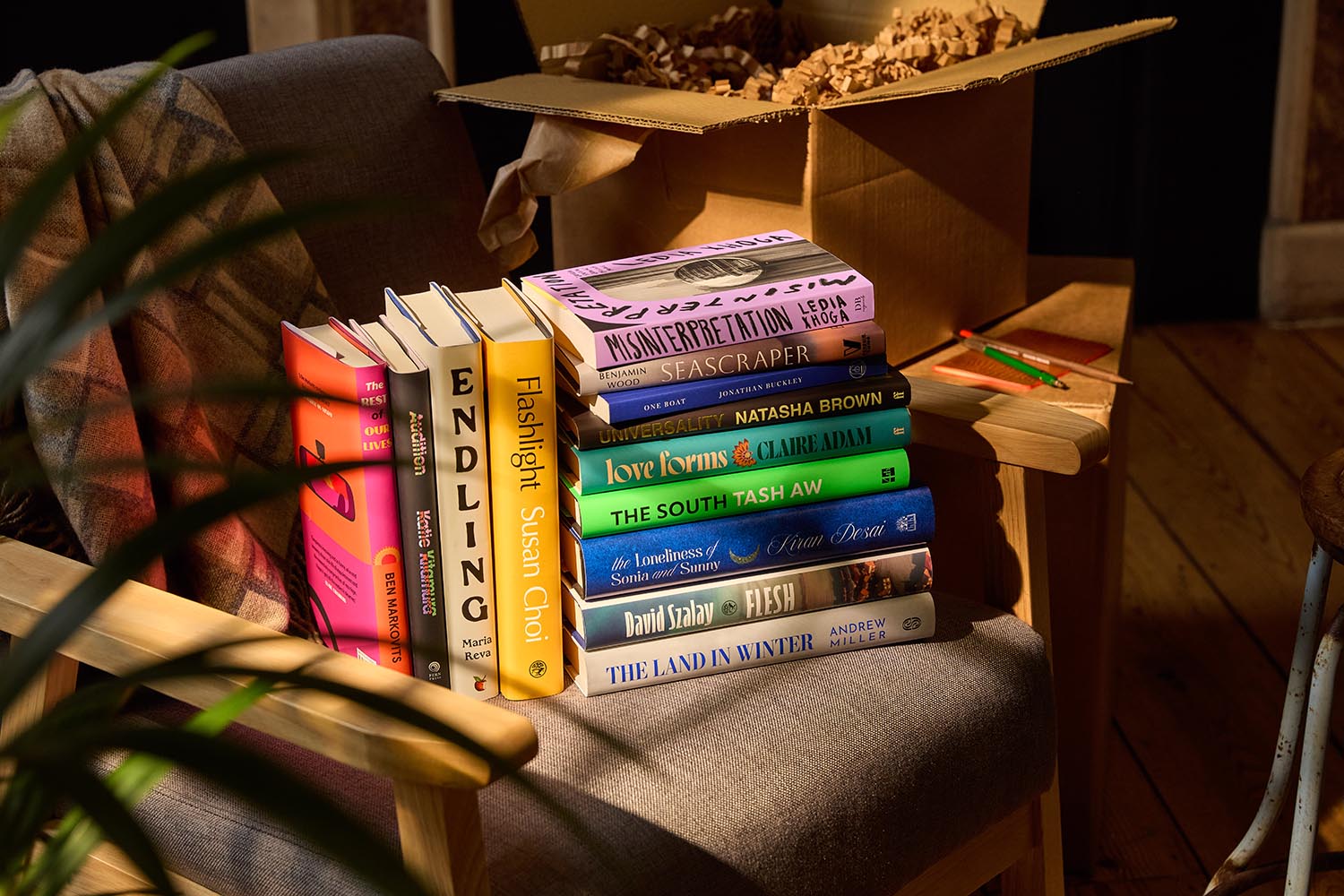What a juicy, serious Booker longlist! I can’t remember the last time I was as excited to read, or reread, every book the judges have selected as contenders for what remains one of the world’s most prestigious literary gongs. The Booker has had its ups and downs in recent decades, including 2011 chair Stella Rimington’s comparison of the publishing industry to the KGB (“black propaganda, destabilisation operations, plots and double agents”), the still-controversial admission of American authors in 2014 (I was a judge that year), and the sphincter-clenching shame of the prize’s division between Bernardine Evaristo and Margaret Atwood in 2019.
Never mind. Every year since man first walked on the Moon, a group of doughty readers signs up to read 160 or so books in just a few months, which is – if you think for just a moment about what it really takes to digest a novel – bizarre. Yet somehow this hot-dog-eating-contest approach to literature means that the books that strike the judges’ hearts and minds leap out at them, announce themselves with force. And here is a baker’s dozen of truly powerful and original titles.
This is a great group of judges: Roddy Doyle – the first Booker winner to chair the panel – is joined by Booker-longlisted novelist Ayòbámi Adébáyò; author and critic Chris Power; New York Times bestselling and Booker-longlisted author Kiley Reid; and actor Sarah Jessica Parker – whose inclusion on the panel raised some eyebrows, but whose credentials as a reader, and as a publisher herself, cannot be in doubt.
Can we look for a theme across the 13 books? A list such as this will reflect what was submitted for the prize by publishers – the books they think have the greatest chance of winning. Books the judges might love may well get left out: they can call in anything they like, but you think pretty carefully about adding to your fellow judges’ already teetering piles of reading. The longlist, shortlist and winner reflect the times, the preferences of publishers and the tastes of the judges.
These judges know that literature should be built to last. There are no historical novels on this list (I don’t think a book set in the 1960s counts as historical quite yet), which is billed as the Booker’s most global for a decade. All, I’d say, reckon with the complexities of family, love, work, ambition, the places and political moments we find ourselves in – and if that sounds like a description of what any good novel might do, what I mean is that each takes on the task with sophistication and subtlety. Natasha Brown’s Universality, a contemporary satire of politics and the media, Misinterpretation by Albanian American Ledia Xhoga, and Maria Reva’s stunning debut, Endling – its events interrupted by the invasion of Ukraine – are perhaps the most overtly political, but their formal adventurousness demonstrates the depth that the novel can bring to issues we struggle to reckon with.
In both Claire Adam’s Love Forms and Susan Choi’s Flashlight, a lost child plays a role – a baby given up before a new life can be made. In Jonathan Buckley’s One Boat, a woman travels in the aftermath of her father’s death and allows the life of a small Greek town to surround her; in Andrew Miller’s The Land in Winter, two couples forge an unlikely connection as its west country setting is locked in an icy grip. For subtle British atmosphere, there’s Benjamin Wood’s accomplished Seascraper.
Kiran Desai’s first novel in nearly 20 years, The Loneliness of Sonia and Sunny, marks a welcome return for the author who won the Booker in 2006 for The Inheritance of Loss. Tash Aw – whose 2005 novel The Harmony Silk Factory announced a powerful new voice – appears with The South, the first in a projected quartet. Yet there’s room here for the dark horse too: I am delighted by the inclusion of Benjamin Markovits’ splendid midlife tale, his 12th novel, The Rest of Our Lives — he’s a writer who has never quite got the plaudits he deserves. Katie Kitamura’s Audition and David Szalay’s Flesh are, I would say, both interrogations of identity. Don’t groan; you’ll be reminded by each why that’s a worthwhile endeavour.
Perhaps you expected to see Chimamanda Ngozi Adichie’s Dream Count, Abdulrazak Gurnah’s Theft or Alan Hollinghurst’s Our Evenings on this list. No matter, those books will still have their life in the world and, in the meantime, you might discover novels you wouldn’t otherwise read. This is a collection that, by its quality, pulls us away from the usual Booker prize number crunching (how many Americans? How many debuts?) back towards the joy of the books themselves.
The 2025 Booker longlist in full
Love Forms by Claire Adam
The South by Tash Aw
Universality by Natasha Brown
One Boat by Jonathan Buckley
Flashlight by Susan Choi
The Loneliness of Sonia and Sunny by Kiran Desai
Audition by Katie Kitamura
The Rest of Our Lives by Ben Markovits
The Land in Winter by Andrew Miller
Endling by Maria Reva
Flesh by David Szalay
Seascraper by Benjamin Wood
Misinterpretation by Ledia Xhoga
To explore all the books on the longlist for the Booker prize 2025 visit The Observer Shop. Delivery charges may apply.
Newsletters
Choose the newsletters you want to receive
View more
For information about how The Observer protects your data, read our Privacy Policy

